A list of films produced in Spain in 1965 (see 1965 in film).
A list of films produced in Spain in 1965 (see 1965 in film).
| Title | Director | Cast | Genre | Notes | ||
|---|---|---|---|---|---|---|
| 1965 | ||||||
| Crimen de doble filo | José Luis Borau | Susana Campos, Carlos Estrada | Crime | |||
| Fata Morgana | Vicente Aranda | First Aranda's film; Escuela de Barcelona | ||||
| Más bonita que ninguna | Luis César Amadori | Rocío Dúrcal, Luigi Giuliani, Gracita Morales | Comedy musical | |||
| Misión Lisboa | Spy | |||||
| Mission to Caracas | Spy | |||||
| El mundo sigue | Fernando Fernán Gómez | Lina Canalejas, Gemma Cuervo | Drama | Never released in cinemas; very hard to see or find | ||
| Snakes and Ladders | Manuel Summers | Entered into the 1965 Cannes Film Festival | ||||
| The Uninhibited | Juan Antonio Bardem | Entered into the 1965 Cannes Film Festival | ||||
| The Art of Living | Julio Diamante | Entered into the 15th Berlin International Film Festival | ||||
| Acteón | Jorge Grau | Entered into the 4th Moscow International Film Festival | ||||

The Spaghetti Western is a broad subgenre of Western films produced in Europe. It emerged in the mid-1960s in the wake of Sergio Leone's filmmaking style and international box-office success. The term was used by foreign critics because most of these Westerns were produced and directed by Italians.

Doctor Zhivago is a 1965 epic historical romance film directed by David Lean with a screenplay by Robert Bolt, based on the 1957 novel by Boris Pasternak. The story is set in Russia during World War I and the Russian Civil War. The film stars Omar Sharif in the title role as Yuri Zhivago, a married physician and poet whose life is altered by the Russian Revolution and subsequent civil war, and Julie Christie as his love interest Lara Antipova. Geraldine Chaplin, Tom Courtenay, Rod Steiger, Alec Guinness, Ralph Richardson, Siobhán McKenna, and Rita Tushingham play supporting roles.
The decade of the 1960s in film involved many significant films.

Sword-and-sandal, also known as peplum, is a subgenre of largely Italian-made historical, mythological, or biblical epics mostly set in the Greco-Roman antiquity or the Middle Ages. These films attempted to emulate the big-budget Hollywood historical epics of the time, such as Samson and Delilah (1949), Quo Vadis (1951), The Robe (1953), The Ten Commandments (1956), Ben-Hur (1959), Spartacus (1960), and Cleopatra (1963). These films dominated the Italian film industry from 1958 to 1965, eventually being replaced in 1965 by spaghetti Western and Eurospy films.

Alexander Crichlow Barker Jr., known as Lex Barker, was an American film and television actor. He was known for playing Tarzan for RKO Pictures between 1949 and 1953, and portraying leading characters from Karl May's novels, notably as Old Shatterhand in a film series by the West German studio Rialto Film. At the height of his fame, he was one of the most popular actors in German-speaking cinema, and received Bambi Award and Bravo Otto nominations for the honor.

Geraldine Leigh Chaplin is an actress whose long career has included roles in English, Spanish, French, Italian and German films.

Fernando Casado Arambillet, best known as Fernando Rey, was a Spanish film, theatre, and television actor, who worked in both Europe and the United States. A suave, international actor best known for his roles in the films of surrealist director Luis Buñuel and as the drug lord Alain Charnier in The French Connection (1971) and French Connection II (1975), he appeared in more than 150 films over half a century.
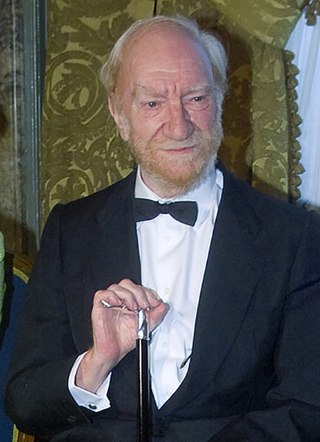
Fernando Fernández Gómez, better known as Fernando Fernán Gómez, was a Spanish actor, screenwriter, film director, theater director, novelist, and playwright. Prolific and outstanding in all these fields, he was elected member of the Royal Spanish Academy in 1998. He was born in Lima, Peru while his mother, Spanish actress Carola Fernán-Gómez, was making a tour in Latin America. He would later use her surname for his stage name when he moved to Spain in 1924.

"Que Será, Será " is a song written by Jay Livingston and Ray Evans and first published in 1955. Doris Day introduced it in the Alfred Hitchcock film The Man Who Knew Too Much (1956), singing it as a cue to their onscreen kidnapped son. The three verses of the song progress through the life of the narrator—from childhood, through young adulthood and falling in love, to parenthood—and each asks "What will I be?" or "What lies ahead?" The chorus repeats the answer: "What will be, will be."

The art of motion-picture making within Spain or by Spanish filmmakers abroad is collectively known as Spanish Cinema.
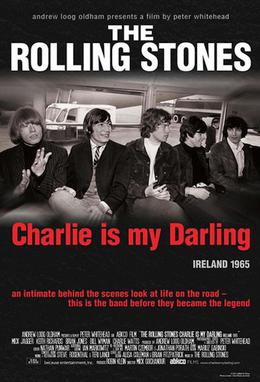
Charlie Is My Darling – Ireland 1965, directed by Peter Whitehead and produced by the Rolling Stones' manager Andrew Loog Oldham, was the first documentary film about the Rolling Stones. It was intended as a screen test for the band, to see how their musical charisma would translate into film. The footage was shot during the band's second tour of Ireland that year, on 3 and 4 September 1965, and was finished in the spring of 1966. It was given its premiere at the Mannheim Film Festival in October 1966. But the film was never officially released, due to the legal fights between the Rolling Stones and Allen Klein and a burglary in Andrew Loog Oldham's office, which saw all prints disappear.
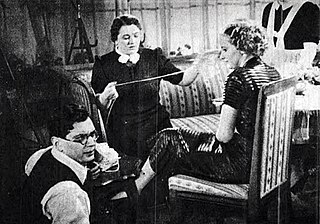
Ladislao Vajda was a Hungarian-Spanish film director who made films in Hungary, Spain, Portugal, the United Kingdom, Italy and West Germany.
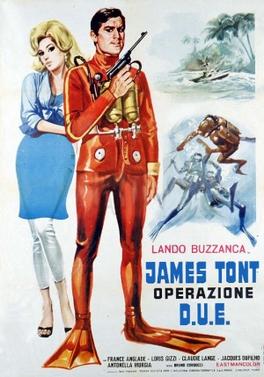
Eurospy film, or Spaghetti spy film, is a genre of spy films produced in Europe, especially in Italy, France, and Spain, that either sincerely imitated or else parodied the British James Bond spy series feature films. The first wave of Eurospy films was released in 1964, two years after the first James Bond film, Dr. No, and in the same year as the premiere of what many consider to be the apotheosis of the Bond series, Goldfinger. For the most part, the Eurospy craze lasted until around 1967 or 1968. In Italy, where most of these films were produced, this trend replaced the declining sword-and-sandal genre.

The Blood of Fu Manchu, also known as Kiss of Death, Kiss and Kill and Against All Odds, is a 1968 British adventure crime film directed by Jesús Franco, based on the fictional Asian villain Dr. Fu Manchu created by Sax Rohmer. It was the fourth film in a series, and was preceded by The Vengeance of Fu Manchu. The Castle of Fu Manchu followed in 1969.

María Concepción Bautista Fernández, better known as Conchita Bautista, is a Spanish singer and actress, best known for her participation in the Eurovision Song Contests of 1961 and 1965.

"Forget Domani" is a song introduced in the 1964 film The Yellow Rolls-Royce being a composition by Riz Ortolani, who scored the film, and lyricist Norman Newell.
Events in the year 1965 in Spain.
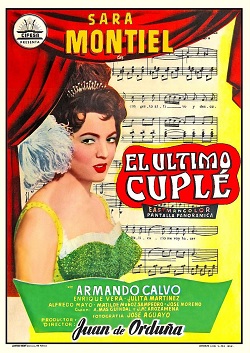
The Last Torch Song, better known under its Spanish title El último cuplé, is a 1957 Spanish jukebox musical film directed by Juan de Orduña and starring Sara Montiel, Armando Calvo and Enrique Vera.
Estudio 1 was a long-running Spanish television anthology series by Televisión Española presenting many classic plays for the home audience since 1965. It was equivalent to Au théâtre ce soir (1966–1985) on TF1 and Play of the Month (1965–1983) on the BBC. The series was noted for its productions of the great Spanish Golden Age playwrights as well as Shakespeare and Schiller.